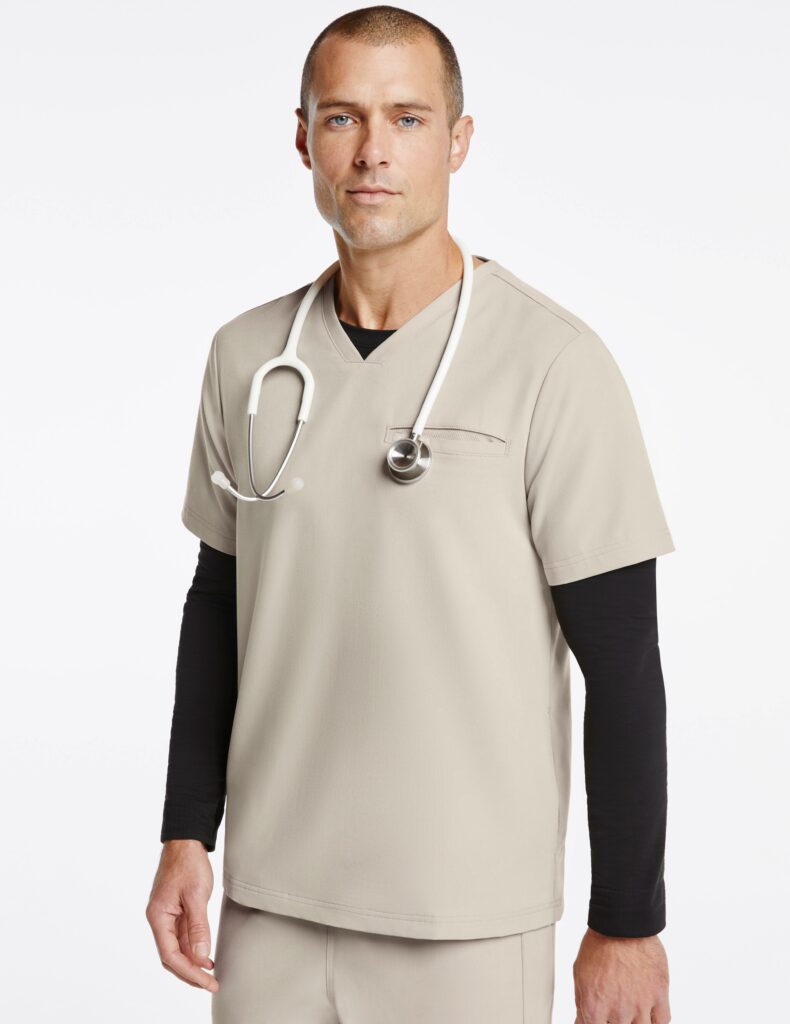
Why Work in Healthcare?
What comes to your mind when you hear the word “healthcare?” Do you visualize a hospital with doctors or nurses running around in lab coats and scrubs? Or do you see medical assistants working in a medical laboratory on blood samples?
These scenes represent some of the work in the healthcare field, but the entire industry encompasses much more. It’s an entire ecosystem that depends on the work of clinical experts, administrators and advocates.
What all these careers have in common, no matter what part of the industry they touch, is they influence patient outcomes for the better. Whether a healthcare professional works in human resources (HR) or surgery, they’re part of something bigger––a mission to provide the best patient care possible.
Read on to find out what are some of the meaningful careers in the healthcare industry, whether you prefer the operating theater or the operations department. You can choose your dream role from a variety of career choices.
Benefits of working in healthcare
If jobs in the healthcare landscape are considered demanding, they’re also rewarding. This is a brave career choice! After all, there’s nothing better than making a difference in people’s lives, right? Healthcare careers allow you to feel good about what you do and why you do it.

While healthcare workers often work long hours and deal with delicate emotional situations, they can also reap many benefits, provided they remember to care for themselves. So, if you find the right role and take care of your mental health, you’ll find yourself in a dream career. Here are some of the benefits that take the job satisfaction level of this career to a whole new level:
- Specialization: Not only can you work in the area of healthcare you enjoy, but you can also specialize within it. Those who want to go into clinical care will have plenty of options. There are more than 100 nursing specialties and more than 150 for doctors. If administrative work appeals to you, there are roles in tech, operations, coding and billing, insurance, law and more.
- High earning potential: Doctors hold one of our society’s most highly respected and well-paid roles. But they aren’t the only ones who earn well. Advanced practice registered nurses (APRNs) often earn six figures. Pharmaceutical sales reps, administrators who work in governmental organizations, and health consultants also make good money.
- Variety in schedules: Healthcare is a profession that doesn’t sleep, which means that whether you prefer an overnight shift or daytime hours with summers off (think: school nurse), there’s a role for you. You can manage your entire day by leveraging this flexibility.
- The work keeps you on your toes: There’s never a dull moment in healthcare environments, especially ones like hospitals and clinics. If you work in a patient-facing role in one of these settings, you’ll see a variety of cases and have to make critical decisions at the moment. You’re literally on your toes at all times. Nurses, for example, walk up to four or five miles in a shift.
- Diversity in roles: Functional healthcare depends on the people who directly treat patients and those who keep medical systems running. The second group of professionals includes everyone from advocates in your community to insurance personnel. Healthcare administrators are equally important in the industry. This translates to no matter what you do in the medical world, it can’t survive without you!
Types of healthcare jobs
For those who have their heart set on providing direct patient care, consider becoming a physician, nurse, or caregiver. But, if you want more indirect work, the following are rewarding healthcare occupations that’ll help you keep the industry running 24/7:
Healthcare Administration
These roles focus on the business and policy aspects of the healthcare sector. The careers in this field include HR specialists, facility administrators, and even insurance company directors.
Why work in healthcare administration: If you’re looking for a secure career path, you can find it in health administration. Your job will entail supervising medical professionals who are direct patient care providers. In fact, according to Public Health Online, roles in healthcare services are estimated to grow by 18% until 2028.

Healthcare recruitment
Healthcare recruiters match medical professionals with employers. They post job opportunities, screen and interview candidates, and present offers.
Why work in healthcare recruitment: Professionals in this role are responsible for staffing healthcare facilities and ensuring qualified individuals find rewarding career opportunities. There would be no patient care without the people who provide it, and healthcare recruiters have the important job of filling open roles correctly.
Healthcare finance
Healthcare finance professionals have the skills to pay the bills. They work in accounting roles, billing, and financial management. They keep private practices on budget and ensure patients get their healthcare expenses reimbursed by their insurance companies.
Why work in healthcare finance: Roles in healthcare finance often pay well, and if you like money enough to work around it all day, the high salary may be a high selling point. But there’s heart in healthcare finance roles, too! You ensure that medical facilities can provide efficient care.
Public health advocacy
Public health advocates help individuals understand the healthcare system, and they address more grave concerns that affect the community by encouraging healthier habits.
Why work as an advocate: The healthcare system is complex, and not all patients have the resources to figure out insurance coverage or treatment plans. Healthcare advocates use their knowledge to empower individuals and help them take control of their health.

Laboratory work
Laboratory professionals explore their love for science and its applications in medicine by performing research and running tests. Lab work helps physicians make diagnoses and define treatment plans, and research shapes the future of medicine.
Why work in a lab: Lab roles are well-suited to those who want to make an impact but prefer not to work directly in a clinical setting.
Your hard work as a medical professional reminds us why the healthcare industry is important. And we’re here to cheer you on as you do that work—even if you’re in a role that doesn’t require scrubs. Everyone in the healthcare sector is a hero to us!